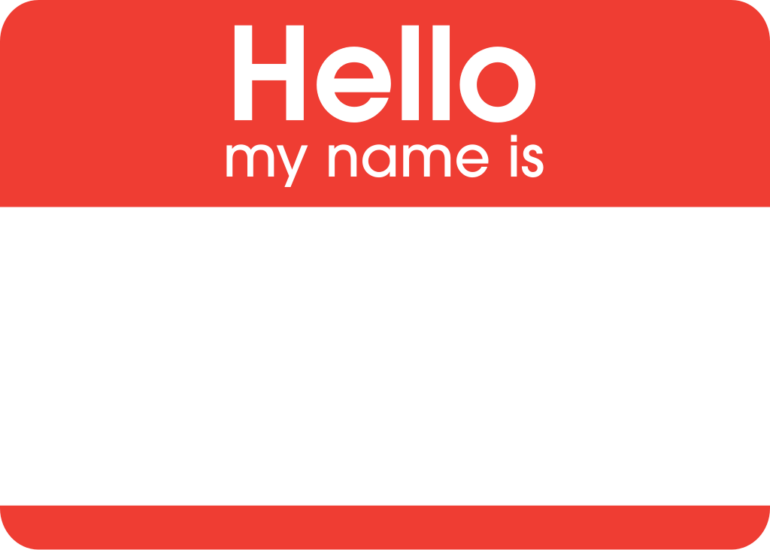The concept of personal branding is on display everywhere you look, it seems. Even animals have carefully groomed personas that are showcased on their own Facebook pages, Pinterest boards, and Instagram and Twitter accounts (hello, @TheRealGrumpyCat).
Whether you’re job-searching or happily employed, your personal brand has never been more important – or more exposed. Your brand is the sum total of your reputation, both personal and professional. It’s a representation of your skills, character, trustworthiness, dedication, honesty, work ethic, appearance, and personality. Basically every aspect of yourself that employers, co-workers, friends and family care about…everything that makes you YOU.
With so many social networks, blogs, news, and other social media outlets, it’s no secret that most people are finding it difficult (and some impossible) to establish and project a clear personal brand. It’s almost like your essence is broken into tiny fragments every time you post or leave a comment on a blog, interact with friends on Facebook, pin to a board on Pinterest, or share your thoughts on IG, TikTok, or Twitter. The challenge is to articulate your personal brand strategically and then communicate it consistently.
For starters, it’s important to consider how others will perceive you solely based on your online presence. Social tools and social networking sites are revolutionizing the notion of personal branding. Whether you like it or not, other people are helping to shape your brand, not just you. Here are some things you can do to ensure that your personal brand is saying the right things about you:
1. Embrace your personality.
Your personality is at the heart of your brand. The old adage is true: you only get one chance to make a first impression. A good personality is a major asset. It’s no accident that many job descriptions include a good sense of humor as a prerequisite. Consider this classic job interview scene from The Mary Tyler Moore Show as a case in point. Whatever your personality type may be, go out there and own it. Are you a geek? No problem. Adorkability is still kind of popular.
2. Differentiate yourself.
When crafting your personal brand, treat yourself like a product. Learn how to express what sets you apart from your competitors. Create a value proposition (“Unlike other candidates, I can ___”). Look at your product packaging (consult What Not to Wear often). Come up with good key messages that will generate and sustain interest in what you’ve got to offer.
Write a clever elevator pitch, so that you’ll be prepared on the off chance you meet your dream boss and have the opportunity to introduce yourself. Imagine yourself in that scenario: what would you say about yourself in those precious few moments to make an impact?
Sometimes, differentiation can come from something as simple as a name. Do you use a suffix (Jr. or Sr.) as part of your identity? Do you use your middle initial (@MeghanMBiro and @KevinWGrossman, for example)? At first, I thought only Michael J. Fox needed to emphasize a middle initial. But when you think about it, using a middle initial always makes the other person spend more time saying and thinking about your name. That’s a good thing. 😉
3. Take control.
It’s scary to realize that some portion of your brand is being determined and communicated by other people, but in the age of hyper-social sharing, commenting, and endorsing on the sites we all know and love, that’s exactly what’s happening. So now, more than ever, it’s essential to take control of your brand. Write your own story before someone else writes it for you.
The first aspect of this step is fairly obvious: live up to your own hype. Deliver on the promises (implied and otherwise) that you’ve made as part of your personal brand. Don’t lie on your resume. But beyond that, do an assessment of your online presence and clean it up as needed to ensure that it’s putting you in the best possible light.
4. Explore new social tools.
Technology is changing at an ever-increasing pace, and while this can feel overwhelming at times, it’s critical to stay on top of the trends. It’s no longer okay to just have a nice interview suit and a good resume printed on high-quality paper (so last century). In fact, some say the resume is becoming obsolete anyway. All the more reason to explore other tools that are available to you.
If some new site or app is gaining traction, you need to be all over it. You don’t have to be the Mayor of every building on your block, but it is a good idea to understand how employers and recruiters are using social tools to zero in on candidates. Are you tapping into QR codes or Qwikis? If these are too high-tech for you, don’t panic, and definitely don’t use that as an excuse to do nothing at all.
Stop lurking on Twitter and start interacting with the companies you want to target and the people who can connect you to them. Use whatever tools you feel comfortable with to help create and support your brand effectively across your online presence. Something else to keep in mind is that you need to register on the various social sites quickly to claim your real name for your public screen name. Snowbunny123 won’t cut it.
5. Be consistent.
Another adaptation from corporate marketing is consistency, but don’t confuse that with predictability. Make sure that your online resumes (on sites like Dice), your Twitter bio, and your LinkedIn profile communicate the same information about your professional qualifications, expertise, and work history. With Twitter, the bio is definitely a challenge, considering you’ve got to cram everything you want to say into 160 characters. Just be on point and on-brand.
Make sure that your websites, blogs, and business cards are complementary. Like a corporate brand, your personal brand is being communicated across a wide variety of channels and media, and you want them all to look like they belong together and that they’re all talking about the same person – both in terms of style and substance.
The best thing about a personal brand is that it’s a living entity that grows and evolves with you as you have new experiences and learn new skills. In the same way that you shouldn’t neglect your network when you land your next job, you need to keep developing and monitoring your personal brand. It may take some effort, but it’s not a burden. It’s a privilege.
Image credit: InverseHypercube (Wikimedia Commons)
A version of my post was originally published on the UpMo blog.



